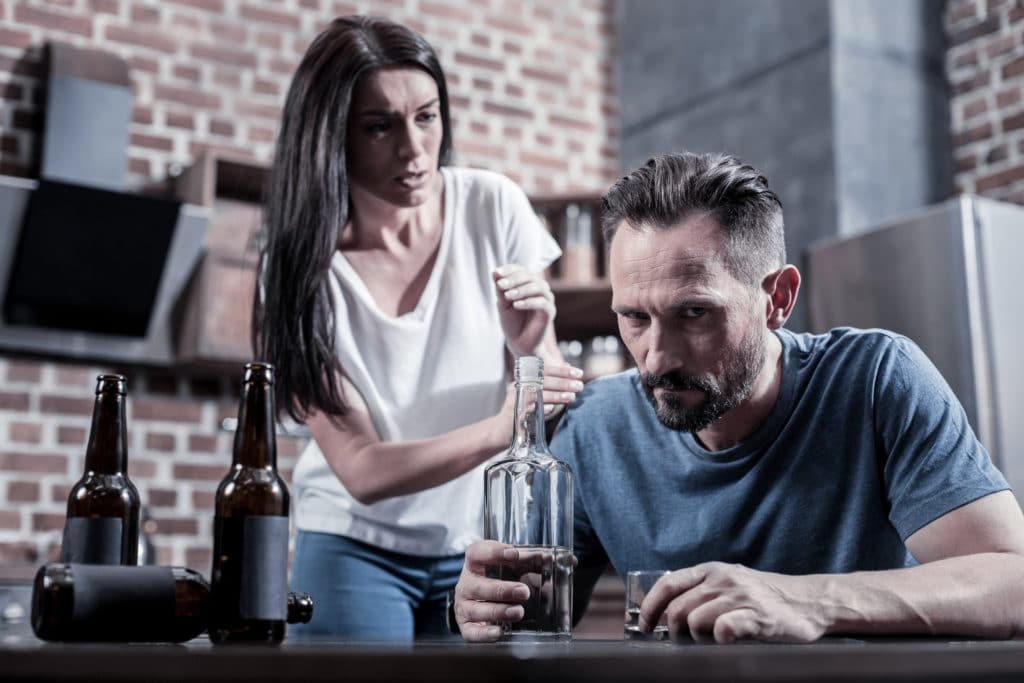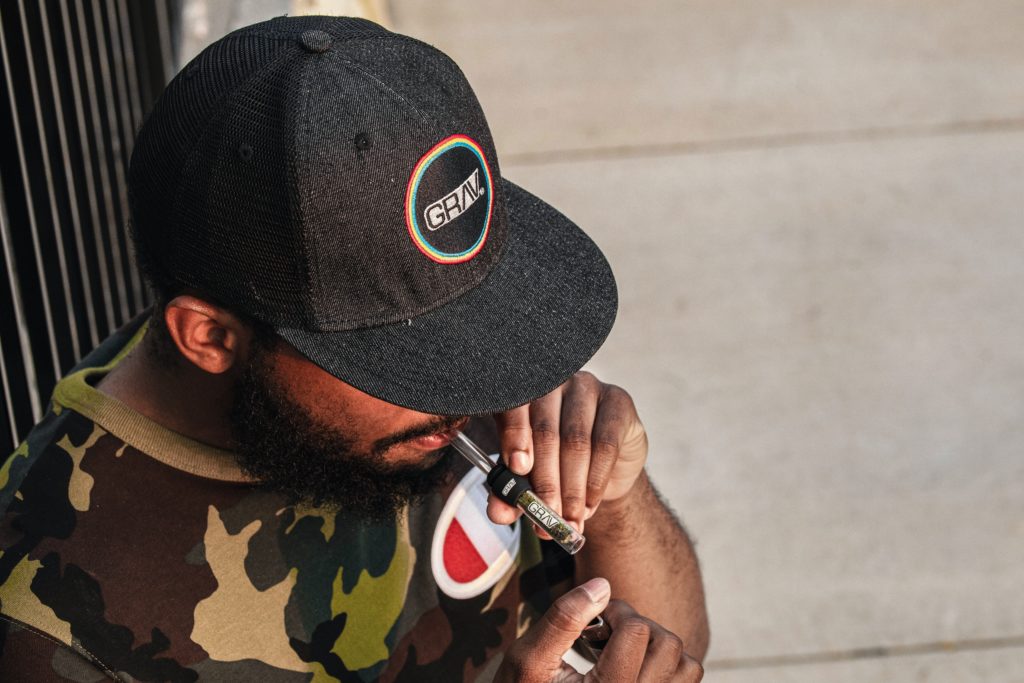One of the most important factors in alcoholism or drug addiction treatment is the strength of the support system around the person in need of help. If you’re a family member of someone undergoing treatment for drug or alcohol addiction, you can have an enormous impact on their recovery by showing them that you are available and supportive.
However, because a loved one’s addiction can be emotionally taxing, family members don’t always have the resources or energy to provide this crucial support. In these cases, group therapy may be the best help for family members of drug addicts to overcome intense feelings and frustration.

Identifying Addiction in the Family
Few families today are immune from addiction, as it affects approximately 20 million people per year in the United States. If you have a loved one suffering from an addiction disorder, use the following information to help them get the treatment they need without enabling them.
If you have a family member struggling with addiction, you know how difficult this situation is for the entire family. People with addiction have difficulty maintaining healthy relationships with their partners and children. Children are more likely to develop an addiction themselves and become the victim of abuse or neglect. Group therapy is the best help for family members of drug addicts to manage the risks with the family children.
But how do you know if your loved one’s use of substances is an addiction? Some questions you can ask yourself regarding the behavioral and emotional signs of substance abuse include:

- Do they try to cut back or stop using, but are unable to do so?
- Do they use more of a substance than they intend to?
- Do they spend a great deal of time looking for the substance, using it, and recovering from using it?
- Do they use a substance in risky situations, such as driving?
- Do they continue taking the substance, despite knowing the substance causes a physical or emotional condition to get worse?
- Are they unable to manage their responsibilities including home, school, or work?
- Do they give up important activities in order to use?
- Do they continue to use a substance, even knowing that it causes problems in relationships?
- Does your loved one show physical signs of abuse, such as taking more of the drug to get high or craving it?
Having at least two of these signs in the past 12 months could indicate that the person has a substance use disorder.
Choosing Substance Use Over Family
A substance use disorder is a pattern of behavior that is characterized by compulsive use of a substance despite having negative consequences from using. It can feel as though your loved one chooses drugs over you or your children. In reality, a person with an addiction may love his or her family very much but may feel unable to control their substance use.
Drug addiction alters a person’s brain chemistry to the point that they lose the ability to control many of their behaviors, that’s the right time to look for group therapy as a help for family members of drug addicts. These changes to a person’s brain are powerful and long-lasting, which is why many people relapse after a period of sobriety.
Helping vs Enabling
At times, it is difficult to know what to do for a person with an addiction. Helping can go too far at times, and you may find yourself enabling them instead. For example, covering or making excuses for their behaviors rather than letting them suffer the consequences would be a prime example of enabling. Another example might be giving them money knowing that they will buy drugs with it, as a family, you must be able to conduct your decisions in the right way not based on love and condescension, but on setting limits and helping. Group therapy can be a big help for family members of drug addicts in these cases.

You may try to help a person with an addiction, but you can easily cross the line, and enable them without even realizing it. Some signs of enabling include:
- Ignoring unacceptable behavior
- Consistently putting aside your needs for theirs
- Assigning blame to others, rather than the person with the addiction
- Ignoring things a person does out of fear of confrontation
- Lying to cover for their mistakes
- Taking on responsibilities for them
What else can be a help for family members of drug addicts?
Educate Yourself About Addiction
- Search online for information about your loved one’s form of addiction: The optimal plan for addiction management and rehabilitation may vary according to the substance on which your loved one is dependent. Priorities reading information from sites with a medical or scientific bias or trustworthy sites such as government or university sponsored information. There is information on the web but not everything you read about drug addiction is true or realistic. Learning about the characteristics of your loved one’s drug and addiction can help you understand what to expect from addicts and how to best address the situation.
- Look out for organizations such as Al-Anon, Ala-Teen and Nar-Anon which offer 12 Step programs for the families and friends of alcoholics and addicts: They offer support for dealing with the addict and sharing with people in similar situations to you will quickly help you to understand the realities of addiction and recovery. These programs will also help you to recover from the emotional effects of a relationship with an active addict.
Seek Professional and Specialist Help
- Look into local detox clinics and rehabilitation centers. Ask a health professional or search online for local health facilities and inpatient care centers that can treat minors or willing addicts.
- Many drug addicts have other conditions: – such as an undiagnosed mental health problem – that contributes to their addiction, so finding a detox center or hospital that can address all aspects of health for your loved one can make the difference between temporary and permanent recovery.
- Speak with a professional therapist or counselor: Besides learning about resources for your addicted loved one, it can be helpful for you and other family members to speak with a therapist or family counselor.
- Living with a drug addicted loved one can cause significant stress on other members of the household. Family therapy can be of tremendous help to confused or stressed parents, children, or romantic partners.
- Search for local anonymous support groups: Besides detoxification and rehabilitation, your loved one may need to attend group or independent therapy.
- Many organizations exist with regular (often daily) meetings to promote drug-free living and a support network of individuals who have conquered their addictions.
- These groups often offer anonymous support and follow the 12-Step program initially developed for Alcoholics Anonymous.
- Encourage your loved one to seek help: Do not ignore the drug use of your loved one. Instead, accept the addiction and the strain it is putting on the family or relationship. Respectfully ask or encourage your loved one to attend a doctor’s visit, therapy session, anonymous support group session, or detoxification clinic.
- Many schools have counselors available to help parents deal with drug-addicted children.
Stage an Intervention
1. Ask for help from a professional.
Interventions should be planned and led by a professional for the best chance of success. A botched intervention risks your loved one becoming even more committed to their addiction.
2. Plan the intervention.
Decide who should be there, who will lead the session, how you will involve the addict, and what activities you will do during the intervention. Many interventions are led by a trained drug therapist or family counselor and have family members, friends, clergy members or teachers, and other influential people from the addict’s life in attendance. Consider all these options while planning an intervention suited to your loved one’s situation.
3. Confront your loved one about his or her substance abuse.
Some interventions involve a series of personal requests from loved ones to ask the addict to enter detox therapy and rehabilitation, while others involve reading letters to the addict aloud or sharing personal feelings about the difficulty of seeing a loved one suffer from addiction. Be prepared for what you will do depending on your loved one’s response.

Persevere but Set Boundaries
1. Offer your emotional support but do not enable the addiction.
Do not give money to your loved one to allow him or her to continue to buy drugs or alcohol, but do remind your loved one that you are ready and willing to help him or her find help.
2. Develop effective communication skills.
Many difficult relationships can fall into communication ruts that make it harder for both parties to express themselves effectively.
- Learning how to communicate better can enable you to focus on conversations that make progress toward seeking help instead of spiraling into negativity, blaming, threats, or shouting matches.
- Consider reading a self-help book or speaking with a counselor about the appropriate way to address a loved one who suffers from addiction.
3. Offer to attend therapy with your addicted loved one.
If you suspect that your loved one is unable or unwilling to attend therapy or support groups alone, make it clear that you are willing to offer support by attending sessions or detoxification treatment with him or her.
4. Know your limits and don’t accept unacceptable behavior.
Be prepared to maintain personal safety by cutting ties if the addict’s behavior warrants it. Behavior that may lead you to consider whether you need to separate yourself and any other family members you care for from the situation include:
- If your family member or loved one is violent or abusive toward you or other family members or loved ones
- Endangering the home or family with risky behavior (such as using drugs near children or conducting drug deals on the property),
- Putting the family’s economic stability in jeopardy (by draining the bank account or selling items from the home to pay for the habit)
- If necessary, consider options such as reporting the addict’s illegal behavior to civil authorities, admitting a minor to an in-patient substance abuse program, relocating without announcing your new location, or demanding the addict leave the home and not return until sober.
Help Your Loved One Finding Treatment For Addiction
Substance use disorders are serious conditions that can cause major health, social, and economic problems that should not be taken lightly. We Level Up California can provide to you, or someone you love, the tools to recover from addiction with professional and safe treatment. Feel free to call us to speak with one of our counselors. Our specialists know what you are going through. Please know that each call is private and confidential. We can also assist you in finding help for family members of drug addicts.